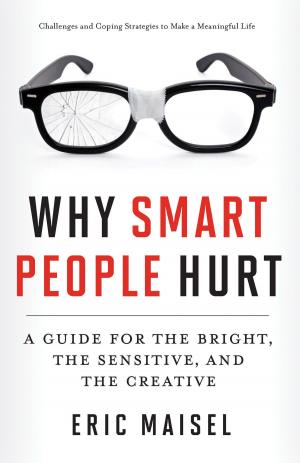Anger Kills
Seventeen Strategies for Controlling Hostility That Can Harm Your Health
Nonfiction, Health & Well Being, Self Help, Self Improvement, Stress Management, Mental Health, Happiness| Author: | Dr. Redford Williams | ISBN: | 9780307818782 |
| Publisher: | Crown/Archetype | Publication: | November 14, 2012 |
| Imprint: | Crown | Language: | English |
| Author: | Dr. Redford Williams |
| ISBN: | 9780307818782 |
| Publisher: | Crown/Archetype |
| Publication: | November 14, 2012 |
| Imprint: | Crown |
| Language: | English |
Anger kills. We’re speaking here not about the anger that drives people to shoot, stab, or otherwise wreak havoc on their fellow humans. We mean instead the everyday sort of anger, annoyance, and irritation that courses through the minds and bodies of many perfectly normal people.
• If your immediate impulse when faced with everyday delays or frustrations—elevators that don’t immediately arrive at your floor, slow-moving supermarket lines, dawdling drivers, rude teenagers, broken vending machines—is to blame somebody;
• If this blaming quickly sparks your ire toward the offender;
• If your ire often manifests itself in aggressive action;
then, for you, getting angry is like taking a small dose of some slow-acting poison—arsenic, for example—every day of your life. And the result is often the same: Not tomorrow, perhaps, or even the day after, but sooner than most of us would wish, your hostility is more likely to harm your health than will be the case for your friend whose personality is not tinged by the tendencies to cynicism, anger, and aggression just described.
In Anger Kills, learn how to recognize the symptoms of chronic anger in yourself, avoid feelings of hostility, and deal with hostility from others.
Anger kills. We’re speaking here not about the anger that drives people to shoot, stab, or otherwise wreak havoc on their fellow humans. We mean instead the everyday sort of anger, annoyance, and irritation that courses through the minds and bodies of many perfectly normal people.
• If your immediate impulse when faced with everyday delays or frustrations—elevators that don’t immediately arrive at your floor, slow-moving supermarket lines, dawdling drivers, rude teenagers, broken vending machines—is to blame somebody;
• If this blaming quickly sparks your ire toward the offender;
• If your ire often manifests itself in aggressive action;
then, for you, getting angry is like taking a small dose of some slow-acting poison—arsenic, for example—every day of your life. And the result is often the same: Not tomorrow, perhaps, or even the day after, but sooner than most of us would wish, your hostility is more likely to harm your health than will be the case for your friend whose personality is not tinged by the tendencies to cynicism, anger, and aggression just described.
In Anger Kills, learn how to recognize the symptoms of chronic anger in yourself, avoid feelings of hostility, and deal with hostility from others.















